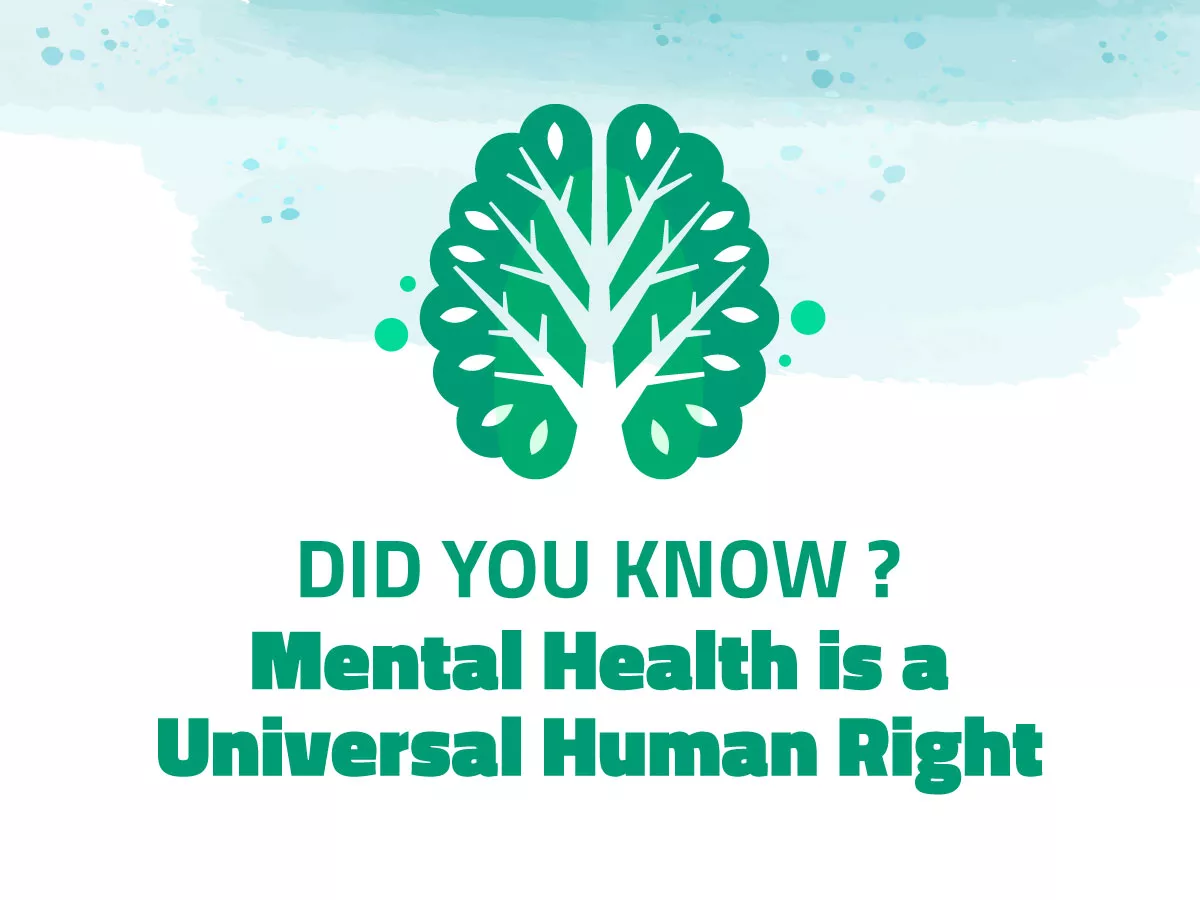Mental health is an integral aspect of overall well-being, and its significance as a universal human right cannot be overstated. Recognized by international organizations and agreements, mental health encompasses emotional, psychological, and social well-being, impacting how individuals think, feel, and act. This overview explores the importance of mental health as a universal human right, emphasizing the need for accessible, equitable, and stigma-free mental health care for all.
Defining Mental Health as a Universal Human Right in two ways:
Understanding Mental Health: Mental health encompasses emotional, psychological, and social well-being, playing a crucial role in an individual's ability to handle stress, relate to others, and make choices.
Human Rights Perspective: Mental health as a human right is affirmed by various international agreements, recognizing the inherent dignity and worth of every person and advocating for the right to mental health and well-being.
Key Principles Supporting Mental Health as a Universal Human Right
- Non-Discrimination: Upholding mental health as a human right necessitates addressing discrimination based on mental health conditions and ensuring equal access to mental health care for all individuals.
- Accessibility: Mental health services and support should be available, affordable, and geographically accessible, ensuring that every individual can access the mental health care they need.
- Equity: Mental health services should be provided equitably, accounting for diverse populations and addressing disparities to ensure fair and just mental health outcomes for all.
Challenges and Barriers to Universal Mental Health Rights
- Stigma and Discrimination: Stigmatization of mental health conditions remains a significant barrier to accessing appropriate care and support, hindering the realization of mental health as a universal human right.
- Resource Allocation: Insufficient funding and resources allocated to mental health services can impede the availability and accessibility of mental health care, particularly in low- and middle-income countries.
- Lack of Education and Awareness: Limited understanding and awareness of mental health issues perpetuate stigma, discrimination, and inadequate support systems, hindering the fulfillment of mental health rights.
The Way Forward: Promoting Mental Health as a Universal Human Right
- Advocacy and Awareness: Raising awareness about mental health, challenging stigma, and advocating for policy changes are crucial steps in promoting mental health as a universal human right.
- Strengthening Mental Health Systems: Investment in mental health infrastructure, workforce training, and research is essential for creating a comprehensive, accessible, and equitable mental health system.
- Collaborative Efforts: International collaboration and partnerships are vital to address the global mental health crisis, working collectively to ensure mental health rights are upheld universally.
Mental health is a fundamental human right, intricately linked to an individual's overall well-being and quality of life. Acknowledging and advocating for mental health as a universal human right is essential to foster a society that is inclusive, empathetic, and supportive of all its members, regardless of their mental health status. By addressing challenges and promoting awareness and accessible services, we can work towards a world where mental health rights are recognized and upheld for everyone.









